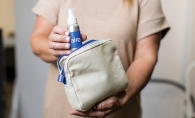A few lake-area communities continue to refresh their recycling programs by revamping ways of the past in hopes to foster an eco-friendly future. Although heading toward the same goal, the programs in Minnetonka, Excelsior, Shorewood and Wayzata put a different spin on how good can always be better.
Minnetonka
In January, Minnetonka gave their recycling methods a makeover by launching a new program through Allied Waste. The approach redefines any reputation recycling once had of being a waste of time—no pun intended.
Only costing residents $2.50 per month, the new program reduces any recycling hassle by accepting more items, transitioning to a single bin pick-up process, and increasing the size and mobility of the recycling carts. The new wheel-bound carts can securely hold up to 60 gallons, making the familiar blue bins another memory of the past. Essentially, Minnetonka households can recycle more with less effort, now that they aren’t required to sort their scraps into separate bins or expected to haul their hard work to the curb by hand.
Although many new items have made the list of recently accepted recyclables, plastic bags might be the latest and greatest addition. Considering Americans shop through at least 100 billion of these bags a year, this is just one example of how everyday options might just be earth-changing opportunities.
In addition to this easy approach, collection will occur every two weeks instead of every week, which will decrease congestion and pollution, making this a win from every environmental angle. For more information on Minnetonka’s program, including details on the various items that are now accepted, check out eminnetonka.com.
Excelsior & Shorewood
A few years ago, Excelsior and Shorewood were two of the first cities to say yes to this single-sort way of recycling, which was a successful change considering participation efforts in these two neighborhoods went from approximately 60 to 90 percent.
Since then, they have become participants of Recyclebank, a community of 3 million members that’s devoted to making our globe a bit greener. Recyclebank rewards members for their green choices by distributing points to households that play a recycling role.
The way it works is simple: On each household’s recycling cart, there is a radio frequency chip which the trucks scan as the waste is collected to track whether or not the household recycled that day. When the truck returns to the warehouse, it’s weighed. Based upon the amount of recycled material that’s been accumulated, recyclers are allotted points; points are divided equally among the participating households that day. Although this has generated some healthy debate, the reasoning is seriously selfless: It’s a communal effort that can be collectively enjoyed.
Members can redeem their points online at any time for rewards of all kinds in various categories. For more information on the program, visit recyclebank.com.
Wayzata
Wazyata’s Organics Program is an additional amenity provided by Randy’s Environmental Services as a way to recycle food and other non-recyclable paper that otherwise might be tossed into the trash. The organic fibers that come from these materials can be composted and made into valuable soil nutrients rather than remaining useless.
Residents are encouraged to collect these materials in each room of their house so when collection day comes, it’s simply a matter of combining the containers and setting them at the curb. Although it could seem complex, sending less to the landfill and more back into the land has never been so simple.
Although Wayzata residents have the help of Randy’s, other communities can compost even if they don’t have a waste-management organization coordinating their efforts. In fact, Hennepin County made a special video to help households understand this process. For more information on this process or to watch the video, visit randyssanitation.com or wayzata.org and search “organics.”









